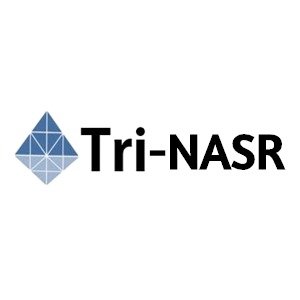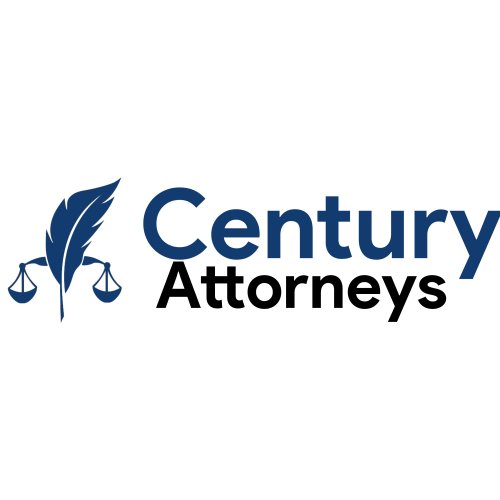Best Telecommunications and Broadcast Lawyers in Kano
Share your needs with us, get contacted by law firms.
Free. Takes 2 min.
List of the best lawyers in Kano, Nigeria
Nigeria Telecommunications and Broadcast Legal Articles
Browse our 1 legal article about Telecommunications and Broadcast in Nigeria written by expert lawyers.
- Telecommunication Services in Nigeria: The Available Legal Rights and Remedies to Customers (Subscribers)
- Telecommunications services are essential to modern society, which facilitates global communication, business, and connectivity. In recent years, Nigeria's telecommunications business has developed and expanded greatly, owing to technology breakthroughs and regulatory reforms. However, in addition to these advancements, consumers frequently face issues such as network congestion, call dropouts, and insufficient... Read more →
About Telecommunications and Broadcast Law in Kano, Nigeria
Telecommunications and Broadcast Law in Kano, Nigeria, is integral to regulating the transmission of information via various communication technologies. This includes oversight of radio, television, satellite, and internet services. Governed by national regulations and local ordinances, these laws ensure fair competition, consumer protection, and adherence to ethical broadcasting standards. In Kano, the State’s commitment to fostering growth in the telecommunications and broadcast sectors is evident, aligning with Nigeria's broader mission to enhance technology-driven development.
Why You May Need a Lawyer
There are several situations where individuals or companies might require legal assistance in Telecommunications and Broadcast in Kano, Nigeria. These include negotiating and drafting contracts for service providers, resolving disputes related to service delivery, handling breaches of broadcast content regulations, ensuring compliance with licensing and regulatory requirements, addressing issues of data protection and privacy, or contesting penalties imposed by regulatory bodies. Lawyers specializing in this field can offer essential guidance to navigate the complex legal landscape.
Local Laws Overview
The local laws relevant to Telecommunications and Broadcast in Kano are primarily dictated by federal legislation, such as the Nigerian Communications Act, supplemented by state-specific directives. Key aspects include the licensing regime, which establishes who can operate as a service provider; content regulation, ensuring that material broadcast is in line with community standards; and consumer protection laws which safeguard against unfair practices. Importantly, laws addressing cyber security and data protection are becoming increasingly crucial as digital adoption grows.
Frequently Asked Questions
What are the licensing requirements for starting a broadcast station in Kano?
A license from the Nigerian Broadcasting Commission (NBC) is required to commence broadcasting operations. Applicants must meet technical, financial, and ethical criteria set by the NBC and adhere to any additional state-specific processes in Kano.
How are disputes between consumers and telecom companies resolved?
Disputes can be resolved through the Nigerian Communications Commission (NCC) complaint process. Consumers may also seek legal recourse through the courts if necessary.
Are foreign companies allowed to operate in Kano’s telecom sector?
Yes, foreign companies can operate in Kano, provided they comply with Nigerian investment laws and obtain the necessary licenses from the relevant authorities.
What are the penalties for broadcasting unauthorized content?
Penalties can include fines, suspension, or revocation of broadcasting licenses. The NBC and other relevant bodies enforce these penalties based on the severity of the violation.
How can a business ensure compliance with data protection regulations?
Businesses should implement robust data management practices and seek legal counsel to ensure compliance with the Nigeria Data Protection Regulation (NDPR) and other relevant laws.
Is internet service provision regulated separately from other telecom services?
No, internet service provision falls under the broader telecommunications regulations and is subject to the same licensing and compliance requirements as other telecom services.
What role does the state government play in telecommunications regulation?
The state government collaborates with federal bodies, implementing and enforcing specific regulations within the state alongside national laws to address local concerns in telecommunications and broadcasting.
How does one appeal a regulatory decision by the NCC?
An appeal against an NCC decision can be filed with the Federal High Court. It is advisable to engage legal counsel to navigate the appeal process effectively.
Can broadcasters air religious content freely in Kano?
Religious content can be aired, but broadcasters must comply with NBC guidelines ensuring content maintains respect for all beliefs and adheres to ethical standards.
What legal support is available for startups in the telecom sector?
Legal support for startups can be found through specialized law firms, incubators offering legal assistance, and mentorship programs focusing on navigating regulatory landscapes.
Additional Resources
For further support, contact the Nigerian Communications Commission (NCC), the Nigerian Broadcasting Commission (NBC), and the Ministry of Communications and Digital Economy. These bodies provide guidance and resources related to compliance and regulatory issues. Organizations such as the National Information Technology Development Agency (NITDA) can also be valuable for understanding data protection obligations.
Next Steps
If you need legal assistance, consider reaching out to a lawyer specializing in telecommunications and broadcast law. Research local law firms with expertise in these fields or seek recommendations from professional networks. Prepare any relevant information and documents detailing your specific concerns to aid the lawyer in providing precise advice. Engaging with legal professionals early can mitigate risks and ensure your activities align with both local and national regulations.
Lawzana helps you find the best lawyers and law firms in Kano through a curated and pre-screened list of qualified legal professionals. Our platform offers rankings and detailed profiles of attorneys and law firms, allowing you to compare based on practice areas, including Telecommunications and Broadcast, experience, and client feedback.
Each profile includes a description of the firm's areas of practice, client reviews, team members and partners, year of establishment, spoken languages, office locations, contact information, social media presence, and any published articles or resources. Most firms on our platform speak English and are experienced in both local and international legal matters.
Get a quote from top-rated law firms in Kano, Nigeria — quickly, securely, and without unnecessary hassle.
Disclaimer:
The information provided on this page is for general informational purposes only and does not constitute legal advice. While we strive to ensure the accuracy and relevance of the content, legal information may change over time, and interpretations of the law can vary. You should always consult with a qualified legal professional for advice specific to your situation.
We disclaim all liability for actions taken or not taken based on the content of this page. If you believe any information is incorrect or outdated, please contact us, and we will review and update it where appropriate.










